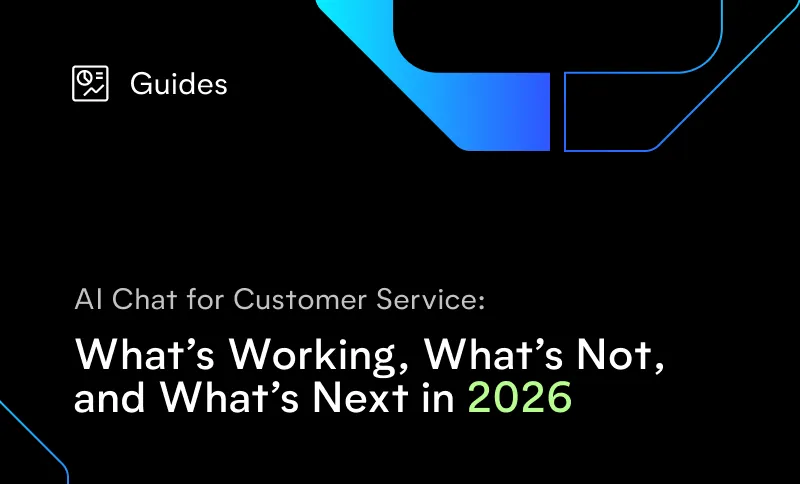
Love’s Travel Stops is among the growing number of enterprises that have successfully integrated AI and automation to tackle today’s distinct CX challenges.
Now multiple years into their AI-enhanced era, Love’s has effectively scaled their customer service operation to deliver a cutting-edge experience for every caller with the flexibility needed to address both routine and complex situations.
In a recent interview on the Dialed In podcast, Brien Mikell, Director of Contact Center Operations at Love’s, shared how their partnership with Replicant has streamlined service, improved agents’ lives, boosted operational efficiency, and ultimately set a new standard in the industry. Let’s dig into how.
Replacing rigidity with flexibility
Love’s’ core customer base consists of professional truck drivers navigating 18-wheelers across the country. In addition, over 600 travel stops serve casual customers who frequent Love’s locations along their own journeys.
Given the numerous locations across the US and their wide range of customers, Love’s’ contact center demand has always varied seasonally, peaking during the summer rush and tapering off in late fall and spring.
Pair that with unpredictable road events, such as ice storms, and it’s clear how both call volumes and service needs can change by the day. With all these factors in mind, Love’s’ AI transformation began with the understanding that they required a flexible solution.
"We needed to find a product that would allow us to scale to those ups and demand those demands of the customer,” said Mikell. “Because you never know when the next storm is going to hit, or when fuel prices change, or whatever the case may be, that ultimately could drive volume into the contact center."
Hiring the right agents for the right tasks
Love’s has always excelled at recruiting individuals who fit their brand well and can quickly learn various products and services. To this day, they rely heavily on their systems and knowledge base to support agents in navigating the complexities of their roles.
However, hiring and retaining agents capable of learning and becoming brand ambassadors quickly remains a common challenge for every call center.
"I had one call type that I dealt with 25 years ago and all I really needed to know was one thing,” said Mikell. “I look today at all the different call types and see that the agent's job has gotten way more complex."
As agents’ roles have become increasingly demanding, Love’s has leveraged AI to emphasize reducing employees’ mundane tasks as much as possible and instead allow them to spend more energy on the calls only they can handle.
Rather than hiring more agents for every call type they receive, Love’s is now able to grow their team more strategically and focus agents on the calls that matter most.
Improving the agent experience with AI
Love’s had experimented with various methods to manage high call volumes, including hiring temporary staff and third-party call centers. However, these solutions proved insufficient due in part to the four-plus weeks required to train new agents.
AI has significantly improved this process by handling simple transactional calls, allowing human agents to focus on more complex issues. As a result, Love’s can spend less time training a workforce that is constantly changing.
“The agents love AI, because it's taking those simple transactional calls [for them],” said Mikell. “When you look at the trend line of when we started resolving calls with AI… there's no denying that it played a very key role in reducing attrition.”
Giving customers time back
Unlike traditional IVR systems that involve pressing multiple buttons, AI allows for natural, conversational interactions. For a business who’s callers are almost always on the road and unable to look at their phones, this has been a welcome improvement for Love’s.
“AI is not like an IVR where it's press one, press two, and there's very little interaction,” said Mikell. “They're actually able to carry a conversation on with the machine and actually think naturally and talk naturally.”
Most importantly, callers are able to get their issues resolved completely without being turned away to an app or webpage for support. As a result, thousands more callers every week are provided with instantaneous service, 24/7, no matter their location.
"One thing we will never have enough of is the value of time,” said Mikell. “Now, the customer is able to get the answer to their problem or question very quickly, without having to wait for an agent."
Re-focusing on business outcomes
In just a few years of leveraging AI, Replicant has handled approximately 180,000 calls on behalf of Love’s, significantly reducing wait times and improving customer satisfaction.
For Love’s, this has enabled a renewed focus on the business value of their contact center. “If AI resolves a call, and an agent does not need to touch the call, there is a clear savings,” said Mikell. “There is no doubt about it that you can derive true savings by having AI in place.”
As Love’s’ contact center continues to see increased resolution rates and higher levels of accuracy and efficiency as they scale to new use cases, Mikell predicts the business impact of AI will scale in tandem across the industry.
“I think that where we'll be in the future, for our industry, I would say 60, 70% of the calls will be handled by a bot and then 40% of those will be that will need to go to an agent.”



.svg)


